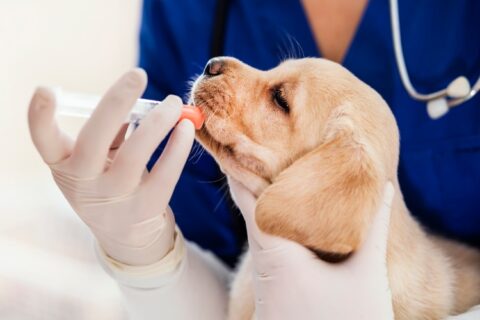10 Fall Safety Tips for Pet Parents
Autumn is a beautiful time of year. It’s perfect for taking long walks with your dogs or just playing fetch in the backyard. Unfortunately, Halloween isn’t the only scary part of fall for pets. Here are some tips to keep your furry friends safe in autumn:
- Don’t let your pooch get too cold. Put a blanket on the porch in case he gets a chill while playing outside. Don’t leave dogs out for extended periods of time in the early mornings or late evenings, especially if you own breeds that aren’t equipped to withstand colder temperatures.
- Watch out for mushrooms. Mushrooms tend to pop up everywhere this time of year, and some are highly toxic to dogs. Supervise independent play, keep your dog close any time he’s off the leash, and if you suspect he’s eaten a mushroom, contact your vet.
- Look out for busy creatures. Coyotes, bobcats, skunks, snakes, and other wild animals are likely to be out getting ready for winter. Pay attention when you’re out with your dog and consider keeping him on a leash.
- Plan night walks carefully. Invest in reflective gear for you and your dog, carry a flashlight, and keep your pet on a leash. Reflective lights on your pet’s collar is recommended.
- Take care of his joints. When the temperature drops, dogs with joint trouble experience more discomfort. Ask your vet about a glucosamine supplement.
- Retractable Leashes. When using a retractable leash, always be aware how far you let the leash extend. Owners should be able to have full control and visibility of their pet. The pet should not be able to advance more than the owner around streets, other dogs, at night or any area where safety is a concern for your pet or others.
- Watch out for ticks. Many types of ticks can survive well into the winter, so be careful whenever you’re outside. Consider natural bug repellents and check for ticks after every walk.
- Avoid allergens. Just like people, pets can itch, sneeze, and cough caused by fall allergens like ragweed and mold. Try to steer clear of allergens and talk to your vet about natural allergy treatment.
- Pamper his paws. Protect those sensitive pads! Most dogs don’t mind booties, and there are natural products you can apply before and after walks to make sure his paws are healthy enough to withstand winter.
- Reassess his diet. In the cooler air, your dog is likely to be more active. Consider increasing calories to account for the extra energy he’s using. Talk to your vet to see if there are any nutrients your dog is lacking.
- Dog–proof the yard. Pick up rotten fruit, break off any bare sticks, and make sure there are no antifreeze spills from your car or other vehicle that may endanger your dog.
Reed Animal Hospital treats your pets as if they were our own. Our goal is to help you and your pet enjoy a healthy, fulfilling life together. In pursuit of that goal, our extraordinary team offers a wide range of services. We’ve got veterinarians, technicians, assistants, and receptionists, all prepared to help you and your pet. We even offer referrals to specialty surgeons, many of who will travel to our office for a consultation with you and your pet. For more information or to make an appointment, call us in Campbell at 408-369-1788, in Saratoga at 408-647-2906, or contact us through our website.


